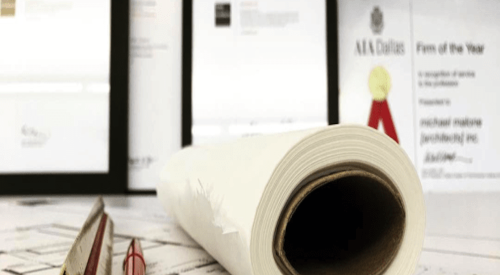All this working from home has made me rethink the tools that I need to effectively do my job. While we all have different roles and responsibilities, Andrew Hawkins, AIA, LEED AP, NCARB, and I put together a few items that we just couldn't live without. I bet a few of these items would be on your list as well.
Architectural Tools can mean just about anything, and for our purposes, I think we are going to define this as things architects use … and the list I have put together is decidedly low-tech and the list Andrew put together is could be hi-tech, but what things are actually on our lists?
So as I sat down to come up with my list of things that I felt were critical to doing my job, I decided that I would pull items not just from my own practice, but from the practice of others. I will also say that I didn’t include anything on my list that would be ridiculous and completely out of beat with the times … like a drawing on linen or using rapidograph pens with mylar sheets and a pin bar.
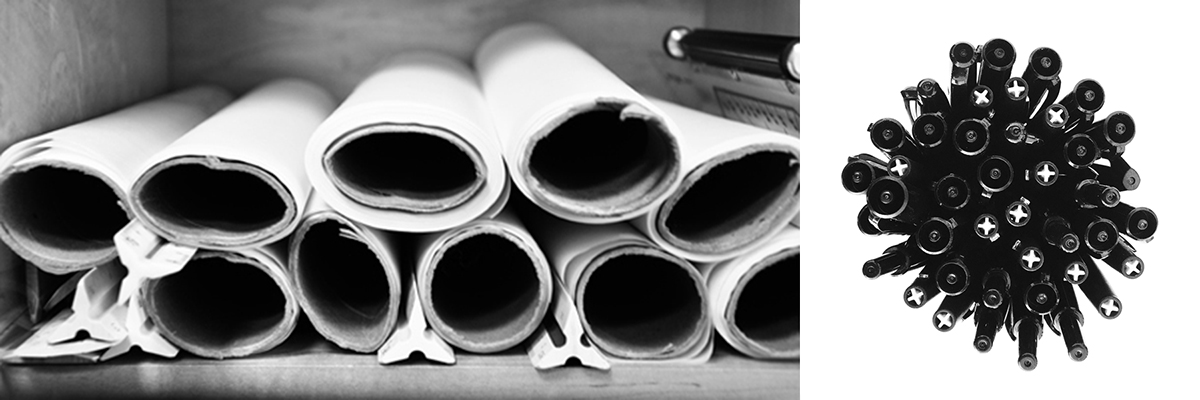
Bob’s Item #1 – Trace Paper and Sharpie Pens [10:00 mark]
The first item on my list was super easy for me and I bet that if you know me at all you would have had a shot at guessing correctly what this item might be. I love using trace paper and sharpie pens. It’s almost at a neurotic level because this is one part of my process that I don’t know what to do when it isn’t available to me. I actually think better when I am sketching through my thoughts – and this is true when I am talking to other people.
Different size rolls but I generally stick to the 12” tall roll even though I typically have a 24” and 30” roll laying about on a shelf somewhere I can get to it.
Color for me has to be white and not yellow. I used to love the yellow – we called it canary paper – because I thought it looked a lot cooler, almost more architectural – but now it has more to do with scanning the sketch in or xeroxing it and it just reads better if it’s on white trace paper. I like Sharpie pens because they put out a lot of ink but that ink dries pretty much instantaneously … it’s like using a fountain pen but without the challenge of dragging my hand (I’m left-handed) through sloppy wet ink.
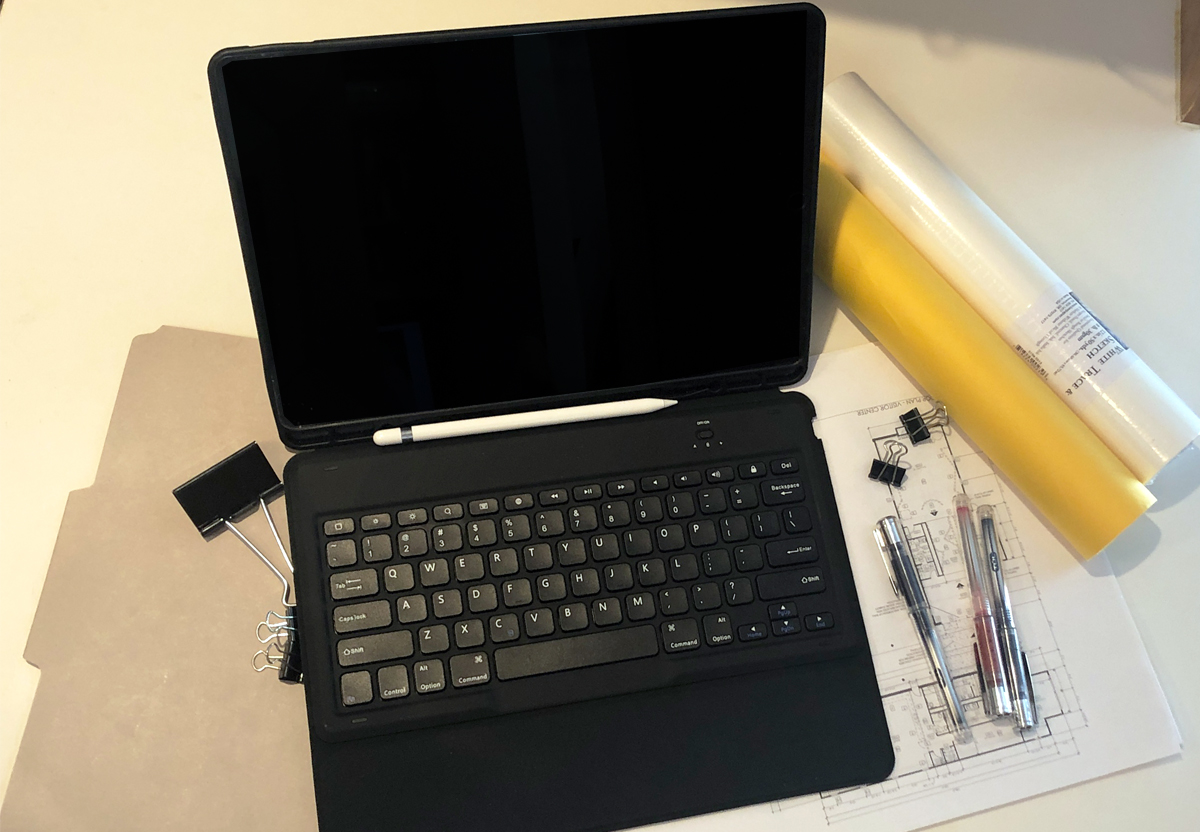
Andrew’s Item #1 – My iPad (or tablet) [16:45 mark]
One of my major “must-haves” is my iPad. Of course, I haven’t always had this as a part of my process, but I adopted it quite quickly. I use this for so many parts of my job. It is my sketchbook, my notebook, my filing cabinet and so much more. I have evolved the way I use this device over time and integrate it into my process. The tablet has settled into a solid place in my workflow but I remain open to new ways to use it in my daily work. This is especially true as my daily work is changing to become more academic.
But this little guy is always in my bag; always with me. I rely on this device to keep my life organized and to store my thoughts and information. I can utilize my long list of curated apps to produce almost every aspect of my professional life. (I did say almost) While it may not be so small these days, I have the 12.9” iPad, it is an indispensable tool in my opinion.
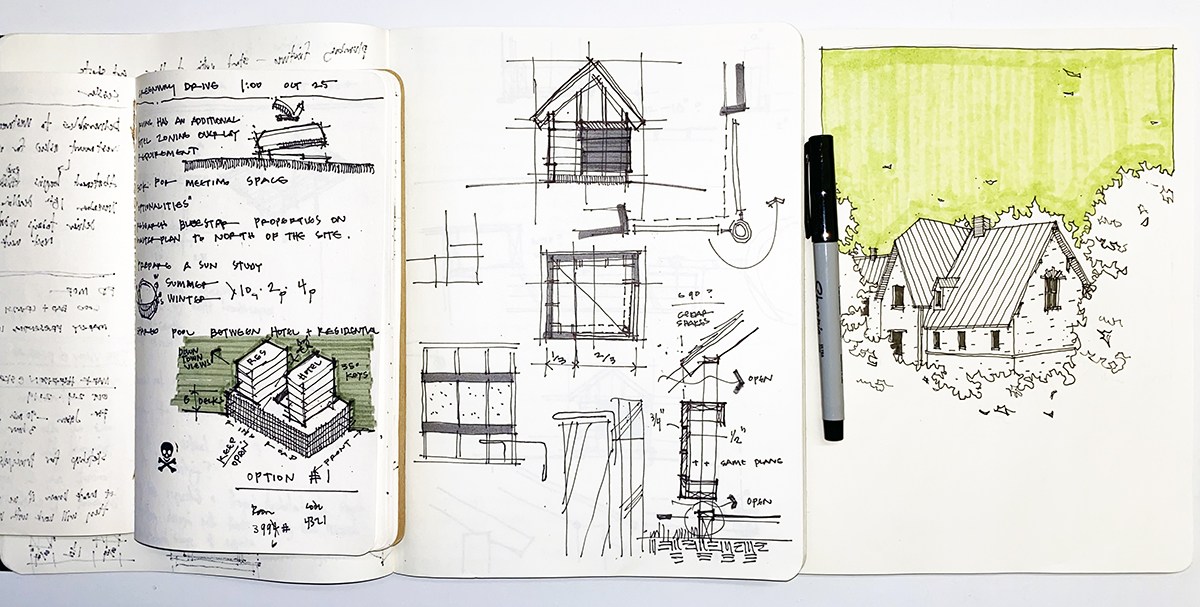
Bob’s Item #2 – Sketchbooks [27:30 mark]
The likely follow up is a sketchbook – and so there it shall be. I did debate including this on this particular list because you don’t have to use one in order to do your job. There are all sorts of sketchbooks but I actually like the really cheap ones the best. There’s something about a nice one that seems too precious to me and my anxiety goes up when I am concerned about sketching a dud into my sketchbook. I received a very nice sketchbook as a gift a few years ago and it is still sitting in the box in which it came. Meanwhile, I have trained my mother-in-law on the sorts I like and I can pretty much count on getting a bunch from her every year during the holidays.
Let’s be honest, we all have digital files coming out of our ears of various things … since starting this blog I have over 10,000 images that I’ve created for use and probably 10x that many that I decided not to use. Do I remember them all? Not even close but there is a diary aspect to the posts that I’ve written that have helped me catalog the passage of time over the last 5 years. I think maintaining sketchbooks – as opposed to creating digital images – works in much the same manner. I feel it’s important to have records of all of your thoughts, ideas, and designs that are centrally located and easily accessible.
I have begun to create a library of sketchbooks that I have filled up and I find myself going through them every now and then remembering exactly what I was doing when I drew on the page. In some instances, it’s a chronology of my day-to-day thought process….something that photographs or videos can never convey.
[The small tan covered sketchbook seen above is this one and the larger black sketchbook can be found here but it defaults to lined books so be sure to change it to “plain”]
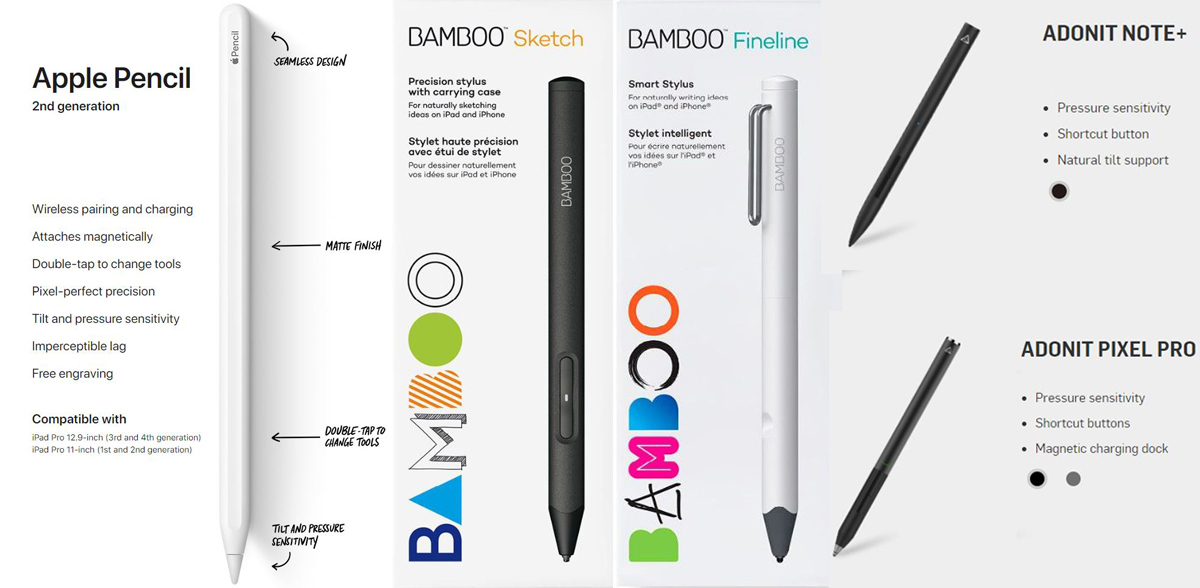
Andrew’s Item #2 – The Stylus [16:45 mark]
This is really the thing that makes the tablet useful in my opinion. This takes it from a giant phone to a more productive tool for a designer. One of my many mottos is “An Architect should always have a pen”, well I would say a tablet should always have a stylus in this case.
I have always used a stylus with my iPad. Always. That is something that I think is imperative for me, maybe due to my “old school” education in design. But that connection from hand to writing instrument is still important to me. I just have updated it with technology. I have purchased a large number of styluses in my search for the best. I would estimate its approaching 40. Now I use the Apple Pencil, but I have some others that I would recommend. These can work for most tablets or they have versions for all kinds.
The brand Adonit makes several types that are really good. They range from simple to advanced and they are typically all very good. The Note+, Adonit Pro, and the Pixel Pro are solid choices. Also, the company Wacom makes some sound choices. As they are a leader in digital art pads, they have also have created a couple of nice styluses as well. The Bamboo Sketch and the Bamboo Fineline are excellent choices. While I have never used it, I have seen good reviews of the Logitech Crayon. As I like many other Logitech products, I would think it’s one is a good product as well. I personally just cannot manage the orange.
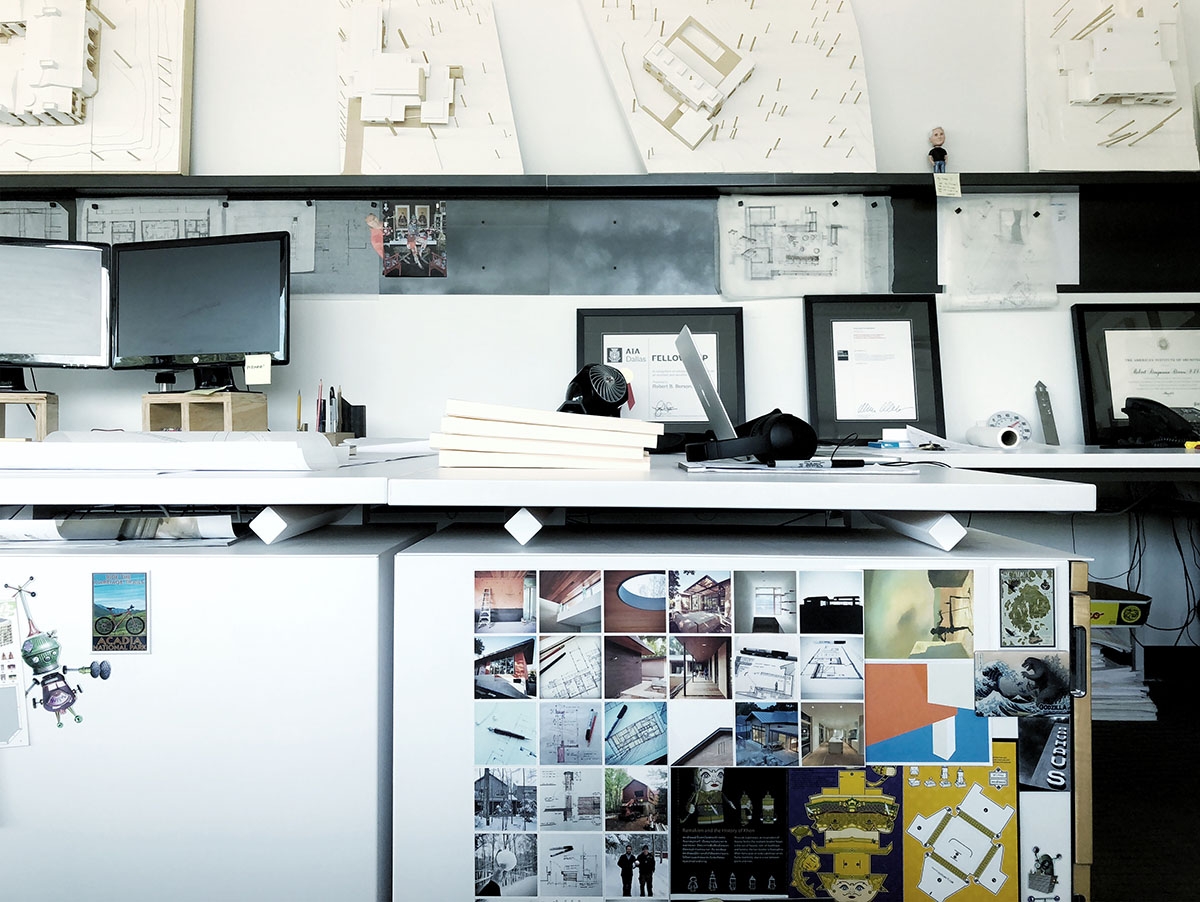
Bob’s Item #3 – Giant Desk [44:49 mark]
A favorite of mine – not necessarily specific to doing the work of an architect, but important none-the-less, is a giant a$$ desk. Maybe this is related to the sketching aspect that I’ve included – I need space to lay out large format drawings so that I can draw on top of them. I do not enjoy the creative process as much when it does not include some form or trace paper and sketching. So as I was debating as to whether or not I wanted to include this item, it sent me down a rabbit-hole of considering how have they changed over time and do they still serve the same purpose as they did just a few years ago? I also wonder what you can tell about a person just by looking at their desk.

Andrew’s Item #3 – The Cloud
We did not get to this one in the episode but this is another of my most used tools. I know this one may seem like a really vague “tool” but I would say this is another tool that is essential to my workflow. This is of course intimately tied to my previous tool which I use to access the cloud. The Cloud is my even larger filing cabinet and storage vault for my work. By keeping a majority of my work stored in the cloud, I am able to access it from anywhere. This stretches well beyond my tablet of course; my desktop, my home, my phone, any connected device in any location. By now the Cloud is an almost seamless part of my workflow, process, and daily life.
I will say that this was a bit more of a slower adoption on my part. Initially, I was hesitant to move ALL my data to the cloud. Mostly it was due to the speed of access and the methods which were not optimal in the early years. Now there is more widespread access and connections to the Cloud. So I have my data there for easy access. Of course, I have this backed up locally in several locations and the original files are stored locally on my 10TB storage drive. Backups are essential; never forget that!

Andrew and I have a list of potential questions that whenever we think of a new question, we add it to the list. After reviewing the candidates for discussion, we decided to keep things super-upbeat with this episode’s hypothetical question. [53:58 mark]
"If you were to be killed by an animal, what kind of animal would you want it to be?"
Turns out that this question wasn’t as easy to answer as you might think, obviously the natural instinct would be something quick and painless … but what would that actually look like?
For the record, and despite the fact that Andrew is just slightly younger than I am, he really enjoys the use of tech and hardware to a far greater degree than myself – I am decidedly more old-school in my process. Granted, you use that technology in a bit of a hybrid way (for example, sketching on your iPad) but the way we go about our jobs probably looks a lot different when compared. I’m not really sure how something like that evolves – do you think people are either more or less inclined towards one method or the other?
It’s not like I am so amazing at sketching that this is some really important method that I feel the need to cling to … I do use technology. In fact, I would argue that I am towards the higher end of the technology spectrum if you take my age into consideration – at least I’m not towards the bottom.
There is no right or wrong way – it’s just about following the methods that work for you. One thing that we did not talk about is how your ability to choose which practice or methodology you adopt is somewhat reliant on your age and where you fit into the system. I’m not entirely sure that someone who is half my age would have the ability to choose as freely as I can … they have to be proficient in their use of drafting software whereas I haven’t done production drafting in years.
Cheers,

Life of an Architect would like to thank BQE Software for their gracious support of this episode, as well as our media partners, Building Design+Construction. Life of an Architect podcast listeners get 10% off an annual Core subscription when signing up today for a free trial. Just visit www.bqe.com/loaa to learn more about the complete firm management platform built for architects.

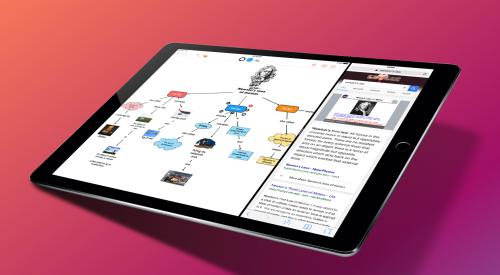
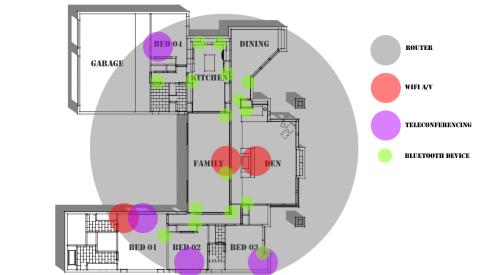

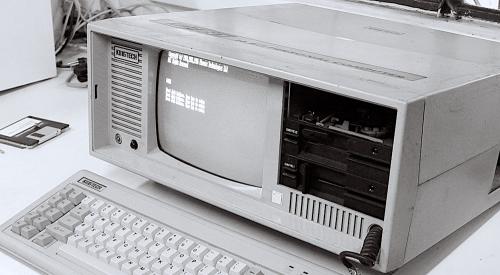
![What to Get an Architect for Christmas [2019]](/sites/default/files/styles/teaser_image_500x275/public/pb/2019-11/Screen%20Shot%202019-11-27%20at%202.31.47%20PM.png?itok=l5b6sBgS)
